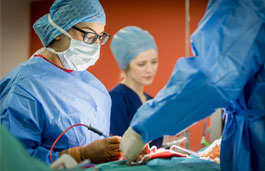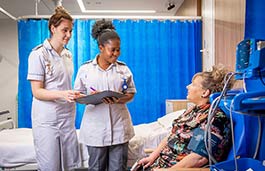Search
Diagnostic Radiography BSc (Hons)
Study level: UndergraduateProfessionally Accredited Programmes
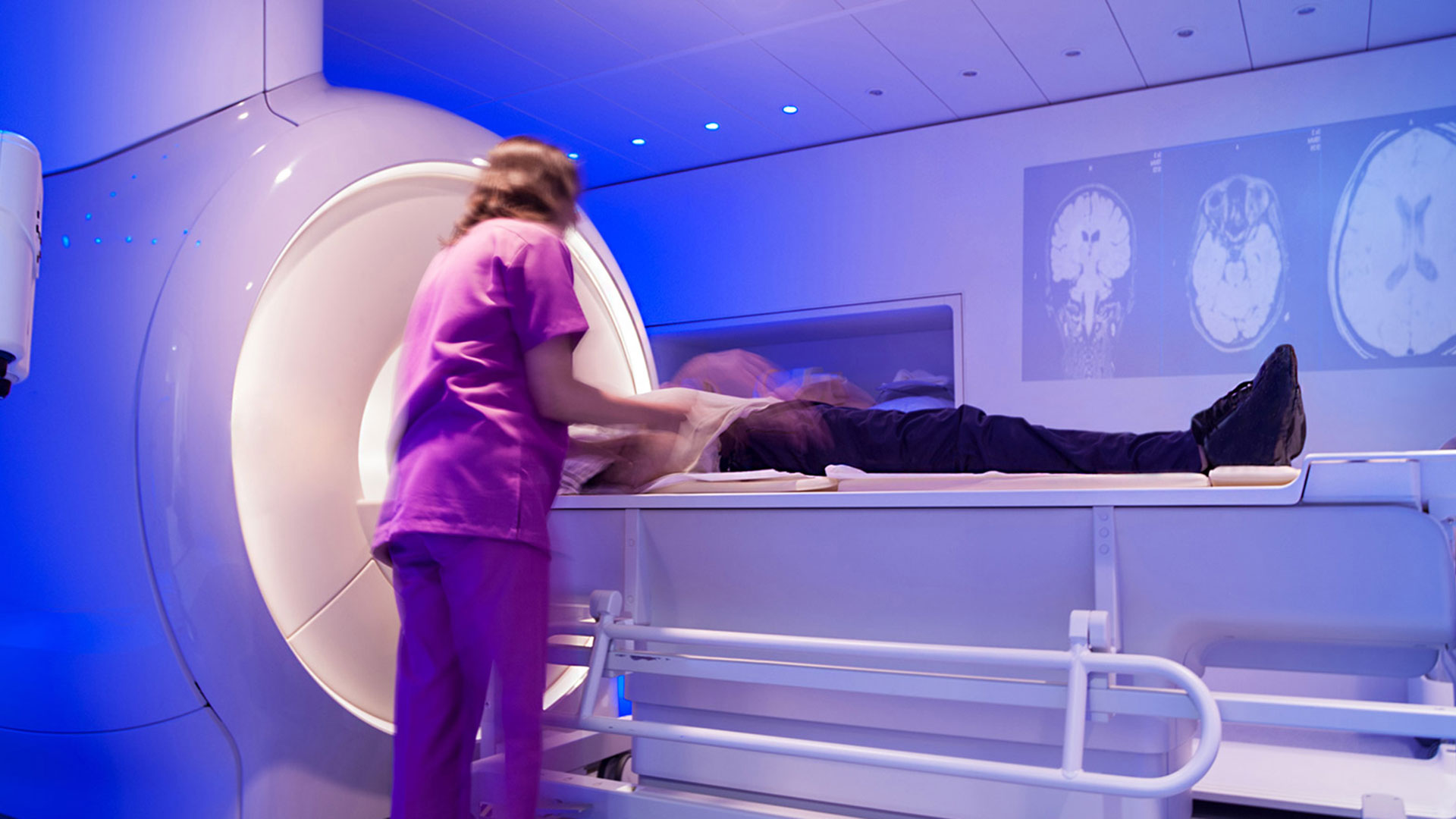
As a diagnostic radiographer, you can play a crucial role in supporting the diagnosis and treatment of medical conditions through a variety of imaging methods.
Course features
Year of entry
2026-27
Location
Coventry University (Coventry)
Study mode
Full-time
Duration
3 years full-time
Course code
HU04
Start date
September 2026
Course overview
Diagnostic radiographers are at the forefront of healthcare delivery, interacting directly with service users and carers to obtain and evaluate images of skeletal and soft tissue abnormalities and injuries. These images not only aid in diagnoses but also guide direct interventional treatments and therapies.
- Learn the scientific principles behind a variety of imaging methods including conventional radiography, computed tomography (CT), magnetic resonance imaging (MRI), radionuclide imaging (RNI) and ultrasound (US).
- Gain knowledge in health-related sciences, including anatomy, physiology, medical physics, imaging technology and radiographic techniques, forming the foundation knowledge for the operation and interpretation of radiography technology.
- Practice-based learning includes state-of-the-art simulation and clinical placements2,5. Apply your theoretical knowledge to the real world in diverse practice environments such as acute, district and community services, and public and private healthcare organisations.
- Learn to collaborate and thrive as a radiographer across and within multidisciplinary teams.
- Study one academic module at a time, with five weeks of learning followed by one week of assessment per module.
- Successful completion of this course will mean you meet the academic requirements set by the Health and Care Profession Council (HCPC) and the Society and College of Radiographers (SoR), opening the door to career opportunities both in the UK and abroad (please see Accreditation section for more information).
- All eligible learners on this course can apply for a minimum payment from the Government of £5,000 per year. You can apply for additional payments if you incur childcare costs6.
Rated Gold Overall
Teaching Excellence Framework (TEF) 20235 QS Stars for Teaching and Facilities
QS Stars University RatingsTop 5 Student City in England (Coventry)
QS Best Student Cities Index 2026Why you should study this course
Our approach supports you to develop a strong sense of professional identity as a radiographer from day one. Using advanced technology and excellent communication skills, diagnostic radiographers work with patients and other healthcare professionals to design treatment programmes, procedures and therapies.
- Access our purpose-built diagnostic radiography suite and bespoke learning space, learning through simulated scenarios and interactive learning4.
- Elective clinical placement opportunity in year two of the course2,5.
- Develop your digital fluency, curiosity, critical and reflective thinking via ongoing use of technology applications.
- Development of cultural competence, through understanding diversity and intercultural experiences, to enable radiographer-delivered person-centred care.
- Access to success coaches, placement supervisors and specialist support for mathematics and academic writing4.
Studying in the School of Health and Care
Gain the skills and experience to transform lives, communities and the future of healthcare delivery. We aim to empower you to become a stand-out healthcare professional, capable, competent and confident in your field and role within the wider healthcare team.
While continuously developing your sense of professional identity as a diagnostic radiographer from day one, you'll also collaborate with learners from other School of Health and Care fields, learning in an environment that puts inclusivity, diversity and dignity at its heart.
Accreditation and professional recognition
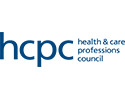
Health and Care Professions Council (HCPC)
The Diagnostic Radiography BSc (Hons) programme is approved by the Health and Care Professions Council (HCPC).
On successful completion of the programme, you will be eligible to apply for HCPC registration (subject to HCPC criteria and any additional costs. See the website for full details).1
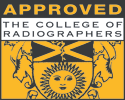
The College of Radiographers (CoR)
The Diagnostic Radiography BSc (Hons) programme is approved by the College of Radiographers (CoR) for the 2026-27 intake.1
On successful completion of the programme, you will be eligible to apply for HCPC registration (subject to application and additional costs – see website for full details).
Memberships
Society of Radiographers (SoR)
You are eligible to become a member of the Society of Radiographers (SoR) (additional costs may apply).
Find out more about Diagnostic Radiography at Coventry.
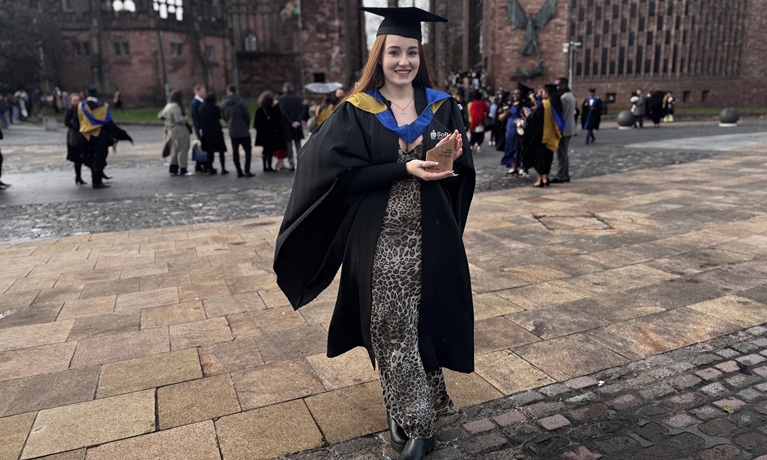
Radiography graduate turns personal health journey into a mission to help others
An award-winning Coventry University graduate is using her personal experience with scoliosis to inspire and support others.
Read Erin's storyWhat you'll study
We regularly review our course content, to make it relevant and current for the benefit of our students. For these reasons, course modules may be updated.
How you'll learn
We understand that everyone learns differently, so this course will consist of structured teaching sessions which may include:
- on-campus lectures, seminars and workshops
- group work
- self-directed learning
- placement opportunities2,5.
Teaching contact hours
As a full-time undergraduate student, you will study modules totalling 120 credits each academic year. A typical 20 credit module requires a total of 200 hours study. This is made up of teaching contact hours, guided and independent study.
Teaching hours:
Teaching hours vary each semester, year of study and due to module selection. During your first year you can expect 15-18 teaching hours each week. You will also have the option to attend optional sessions including time with a progress coach or to meet with staff for advice and feedback. As you progress through your studies, teaching hours may reduce.
Practice-based learning:
Practice-based learning forms an essential and significant part of your learning experience. Practice hours will differ between placements and different health and care courses. You will have access to university staff, but should expect to spend the majority of your contact time with practice collaborators undertaking placement activity. Overall, the hours you undertake in practice-based learning will need to satisfy the eligibility requirements set by the professional body regulating the profession, the HCPC. No less than 1162 practice-based hours gained from a combination of placement and simulated learning will need to be completed over the course of your degree.
Guided and independent study:
Throughout your studies, you will be expected to spend time in guided and independent study to make up the required study hours per module. You'll be digging deeper into topics, review what you've learnt and complete assignments. This can be completed around your personal commitments. As you progress through your studies, you'll spend more time in independent study.
Online learning:
As an innovative university, we use different teaching methods including online tools and emerging technologies. So, some of your teaching hours and assessments may be delivered online.
Assessment
This course will be assessed using a variety of methods which will vary depending upon the module.
Assessment methods may include:
- coursework
- practical placement2,5
- formal examinations
- Virtual Simulated Placements
- simulations
- Objective Structured Clinical Examinations
- presentations.
The Coventry University Group assessment strategy ensures that our courses are fairly assessed and allows us to monitor student progression towards achieving the intended learning outcomes.
Entry requirements
Typical entry requirements:
Fees and funding
| Student | Full-time | Part-time |
|---|---|---|
| UK, Ireland*, Channel Islands or Isle of Man | 2026/27 fees TBC 2025/26 fees: £9,535 per year |
Not available |
| EU | 2026/27 fees TBC 2025/26 fees: £9,535 per year with EU Support Bursary** 2026/27 fees TBC 2025/26 fees: £18,300 per year without EU Support Bursary** |
Not available |
| International | 2026/27 fees TBC 2025/26 fees: £18,300 per year |
Not available |
A non-repayable grant of £5,000 and extra payments worth up to £3,000 may be available to eligible students for each year of study6. Read more about this in the NHS Learning Support Fund information booklet.
For advice and guidance on tuition fees and student loans visit our Undergraduate Finance page and see The University’s Tuition Fee and Refund Terms and Conditions.
The University will charge the tuition fees that are stated in the above table for the first Academic Year of study. The University will review tuition fees each year. For UK (home) students, if Parliament permits an increase in tuition fees, the university may increase fees for each subsequent year of study in line with any such changes. Note that any increase is expected to be in line with inflation.
For international students, we may increase fees each year, but such increases will be no more than 5% above inflation. If you defer your course start date or have to extend your studies beyond the normal duration of the course (e.g. to repeat a year or resit examinations) the University reserves the right to charge you fees at a higher rate and/or in accordance with any legislative changes during the additional period of study.
We offer a range of International scholarships to students all over the world. For more information, visit our International Scholarships page.
Tuition fees cover the cost of your teaching, assessments, facilities and support services. There may be additional costs not covered by this fee such as accommodation and living costs, recommended reading books, stationery, printing and re-assessments should you need them. Find out what's included in your tuition costs.
The following are additional costs not included in the tuition fees:
- Any optional overseas field trips or visits: £400+ per trip.
- Any costs associated with securing, attending or completing a placement (whether in the UK or abroad).
*Irish student fees
The rights of Irish residents to study in the UK are preserved under the Common Travel Area arrangement. If you are an Irish student and meet the residency criteria, you can study in England, pay the same level of tuition fees as English students and utilise the Tuition Fee Loan.
**EU Support Bursary
Following the UK's exit from the European Union, we are offering financial support to all eligible EU students who wish to study an undergraduate or a postgraduate degree with us full-time. This bursary will be used to offset the cost of your tuition fees to bring them in line with that of UK students. Students studying a degree with a foundation year with us are not eligible for the bursary.
Facilities
Our multi-million-pound Alison Gingell Building4 features a range of mock healthcare settings, including hospital wards, ambulance and operating theatre, as well as an x-ray suite and a computer lab for image viewing, giving you the opportunity to replicate real-life situations before you go on placement.
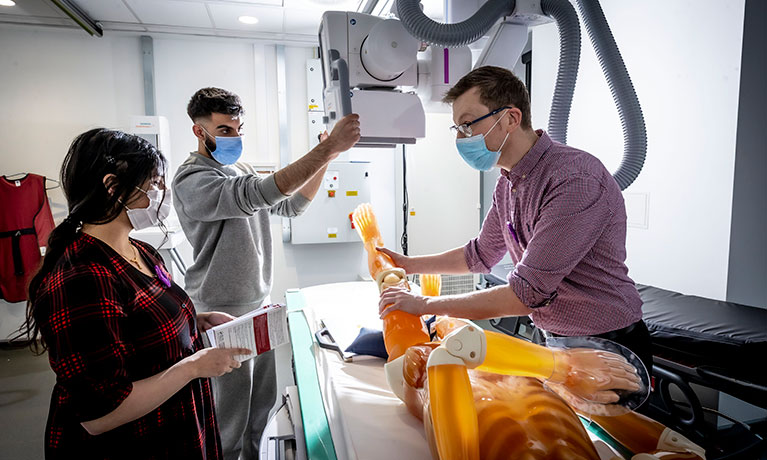
Radiography Suite
You will have the opportunity to practice radiographic imaging using our fully functioning x-ray room that simulates the clinical environment, combined with a diagnostic radiography phantom that mimics human anatomy. Our suite also contains twenty image viewing workstations to support students in learning radiographic anatomy, pathology and image interpretation.
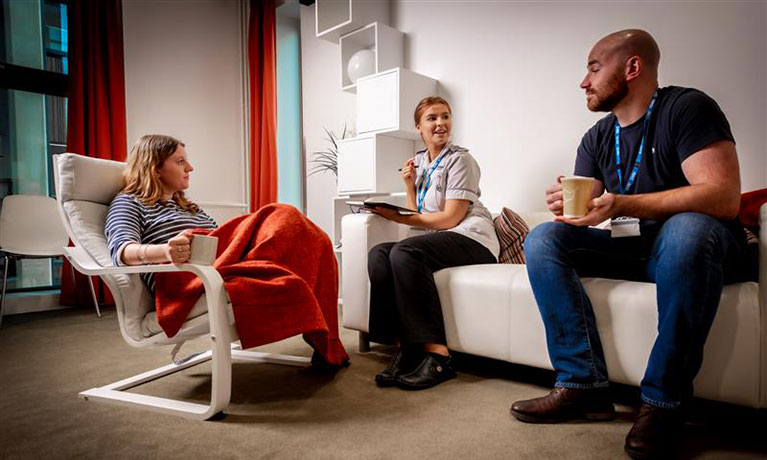
Community Houses
Our two full-size community homes can be used for sessions simulating working with patients outside of a hospital setting.
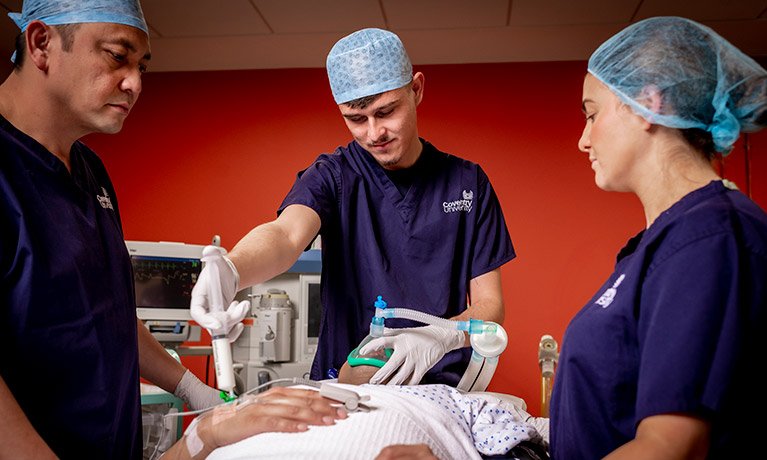
Operating Theatre
We have set up our specialist facility to simulate real-life hospital surgery. It includes all the equipment needed to train effective operating department practitioners.
Facilities are subject to availability. Access to some facilities (including some teaching and learning spaces) may vary from those advertised and/or may have reduced availability or restrictions where the university is following public authority guidance, decisions or orders.
Careers and opportunities
Throughout the course you will be given the opportunity to develop knowledge of health-related sciences as well as exploring patient interaction, care and protection. You will have clinical practice placements every year, enabling you to put theory into practice2,5.
The course is accredited by the Health and Care Professions Council (HCPC)1 enabling you to register as a radiographer upon successful completion (additional requirements and costs may apply).
The UK is facing a shortage of numbers in this vital profession with more than half of radiology leaders saying they need more diagnostic radiographers to keep patients safe.
The university offers a range of support services to help you plan and prepare for your career options upon graduation.
How to apply
You may also like
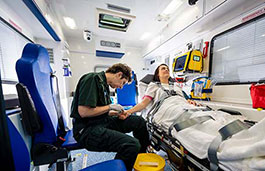
Paramedic Science BSc (Hons)
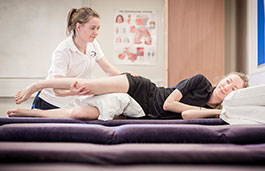
Physiotherapy BSc (Hons)
